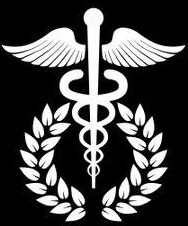Sexual health is a critical aspect of overall well-being, impacting both physical and mental health. For men, maintaining good sexual health involves a combination of lifestyle choices, medical care, and understanding one’s own body.
This guide outlines practical steps and strategies that men can take to enhance their sexual health, addressing physical fitness, diet, mental health, medical interventions, and relationship dynamics.
1. Physical Fitness f
Regular exercise is essential for maintaining good sexual health. Physical activity improves cardiovascular health, which is crucial for erectile function. It also boosts testosterone levels, reduces stress, and enhances body image, all of which contribute to a healthy sex life.
a. Cardiovascular Exercise
Engaging in activities such as running, swimming, and cycling can improve blood flow, which is essential for erectile function.
Aim for at least 150 minutes of moderate-intensity or 75 minutes of high-intensity cardio exercise per week.
b. Strength Training
Strength training exercises, such as weightlifting, can help increase testosterone levels. Incorporating exercises that target major muscle groups at least twice a week can boost overall fitness and sexual performance.
c. Flexibility and Core Workouts
Yoga and Pilates can improve flexibility, reduce stress, and enhance core strength, contributing to better sexual performance and reduced risk of injuries.
2. Healthy Diet
A balanced diet rich in essential nutrients supports overall health and sexual function. Certain foods can boost libido, improve blood flow, and enhance stamina.
a. Nutrient-Dense Foods
Foods high in antioxidants, vitamins, and minerals are vital. Incorporate plenty of fruits, vegetables, whole grains, lean proteins, and healthy fats into your diet.
Specifically, foods like spinach, berries, nuts, and fish are known to improve sexual health.
b. Hydration
Staying hydrated is crucial for maintaining energy levels and overall bodily functions, including sexual performance. Aim to drink at least 8-10 glasses of water a day.
c. Limiting Unhealthy Substances
Reduce the intake of processed foods, sugar, and excessive alcohol, as these can negatively impact sexual health.
Smoking is particularly harmful and quitting can significantly improve erectile function and overall health.
3. Mental Health and Stress Management
Mental health directly affects sexual health. Stress, anxiety, and depression can lead to sexual dysfunction, including erectile dysfunction and decreased libido.
a. Mindfulness and Meditation
Practicing mindfulness and meditation can help reduce stress and anxiety, improve mental clarity, and enhance sexual satisfaction.
Techniques such as deep breathing and progressive muscle relaxation can also be beneficial.
b. Counseling and Therapy
Professional counseling or therapy can address underlying psychological issues that affect sexual health.
Cognitive-behavioral therapy (CBT) and sex therapy are effective for treating sexual dysfunction related to mental health.
c. Adequate Sleep
Poor sleep can lower testosterone levels and increase stress. Aim for 7-9 hours of quality sleep per night to support overall health and sexual function.
4. Medical Interventions
Regular medical check-ups are essential for early detection and treatment of conditions that can affect sexual health.
a. Regular Check-Ups
Annual physical exams can help detect conditions such as diabetes, high blood pressure, and heart disease, which can impair sexual health. Early detection allows for timely management and treatment.
b. Medication and Treatments
For those experiencing sexual dysfunction, medical treatments such as phosphodiesterase inhibitors (e.g., Viagra, Cialis) can be effective. Hormone replacement therapy may be necessary for men with low testosterone levels.
c. Addressing Chronic Conditions
Managing chronic conditions like diabetes and hypertension is crucial. These conditions can cause or exacerbate sexual dysfunction, so maintaining good control over them is essential.
5. Understanding and Communication
Open communication with a partner about sexual needs and concerns can greatly enhance sexual satisfaction and health.
a. Open Dialogue
Discussing sexual preferences, boundaries, and any concerns with a partner can improve intimacy and reduce anxiety related to sexual performance.
b. Educating Yourself
Understanding sexual health, anatomy, and the aging process can help set realistic expectations and reduce performance anxiety. Books, reputable websites, and professional advice can provide valuable information.
6. Lifestyle Choices
Certain lifestyle choices have a significant impact on sexual health.
a. Avoiding Substance Abuse
Alcohol, tobacco, and recreational drugs can impair sexual function. Limiting or avoiding these substances can improve sexual health.
b. Maintaining a Healthy Weight
Obesity is linked to several conditions that can impair sexual health, such as diabetes and cardiovascular disease. Maintaining a healthy weight through diet and exercise can improve sexual function.
7. Supplements and Herbal Remedies
Some supplements and herbal remedies may support sexual health, but it’s important to consult a healthcare provider before starting any new supplement.
a. Popular Supplements
Supplements such as L-arginine, ginseng, and maca root are often touted for their benefits to sexual health. However, the efficacy and safety of these supplements vary, and professional advice is recommended.
b. Potential Risks
Herbal remedies and supplements can interact with medications and may have side effects. Always consult a healthcare provider before beginning any new supplement regimen.
8. Addressing Age-Related Changes
Sexual health can change with age, but many men can maintain a healthy sex life well into their later years.
a. Understanding Changes
Aging can lead to changes in libido, erectile function, and sexual stamina. Understanding these changes can help manage expectations and reduce anxiety.
b. Staying Active
Continuing to engage in physical activity, maintaining a healthy diet, and managing stress are crucial for sexual health as you age.
c. Medical Support
Seek medical advice if you experience significant changes in sexual health. Treatments and lifestyle adjustments can often address these issues effectively.
9. Building Healthy Relationships
Healthy relationships play a crucial role in sexual satisfaction and overall well-being.
a. Emotional Intimacy
Building emotional intimacy through communication, trust, and shared experiences can enhance sexual satisfaction. Emotional connection often translates to better physical intimacy.
b. Addressing Relationship Issues
Relationship conflicts can lead to sexual dysfunction. Addressing and resolving these issues through open communication or couples therapy can improve sexual health.
10. Preventive Measures and Safe Practices
Practicing safe sex and taking preventive measures are essential for maintaining sexual health.
a. Safe Sex Practices
Using condoms and dental dams can prevent sexually transmitted infections (STIs). Regular STI screenings are important, especially for those with multiple partners.
b. Vaccinations
Vaccinations, such as the HPV vaccine, can protect against certain infections that affect sexual health. Consult with a healthcare provider about recommended vaccinations.
c. Personal Hygiene
Maintaining good personal hygiene, including regular washing of the genital area and safe sexual practices, can prevent infections and promote sexual health.
Conclusion
Improving sexual health for men involves a holistic approach that includes physical fitness, a balanced diet, mental well-being, medical care, open communication, and healthy lifestyle choices.
By taking proactive steps and seeking professional advice when necessary, men can enhance their sexual health and overall quality of life.
Remember, sexual health is a vital part of overall health, and investing in it can lead to a more fulfilling and satisfying life.



